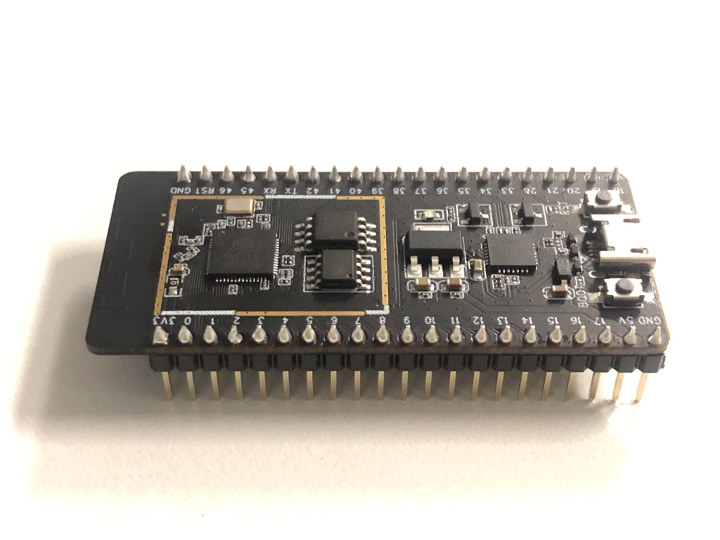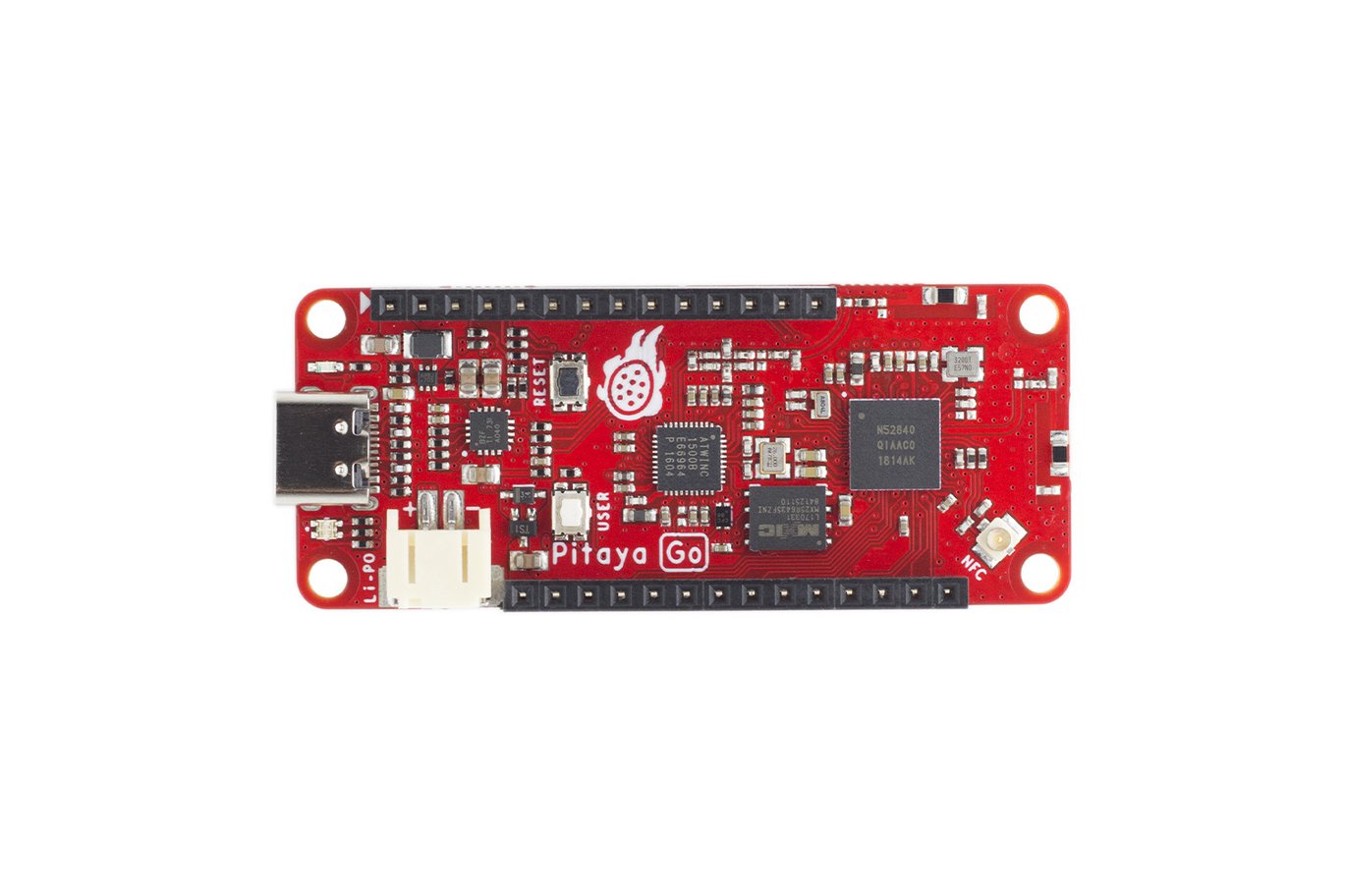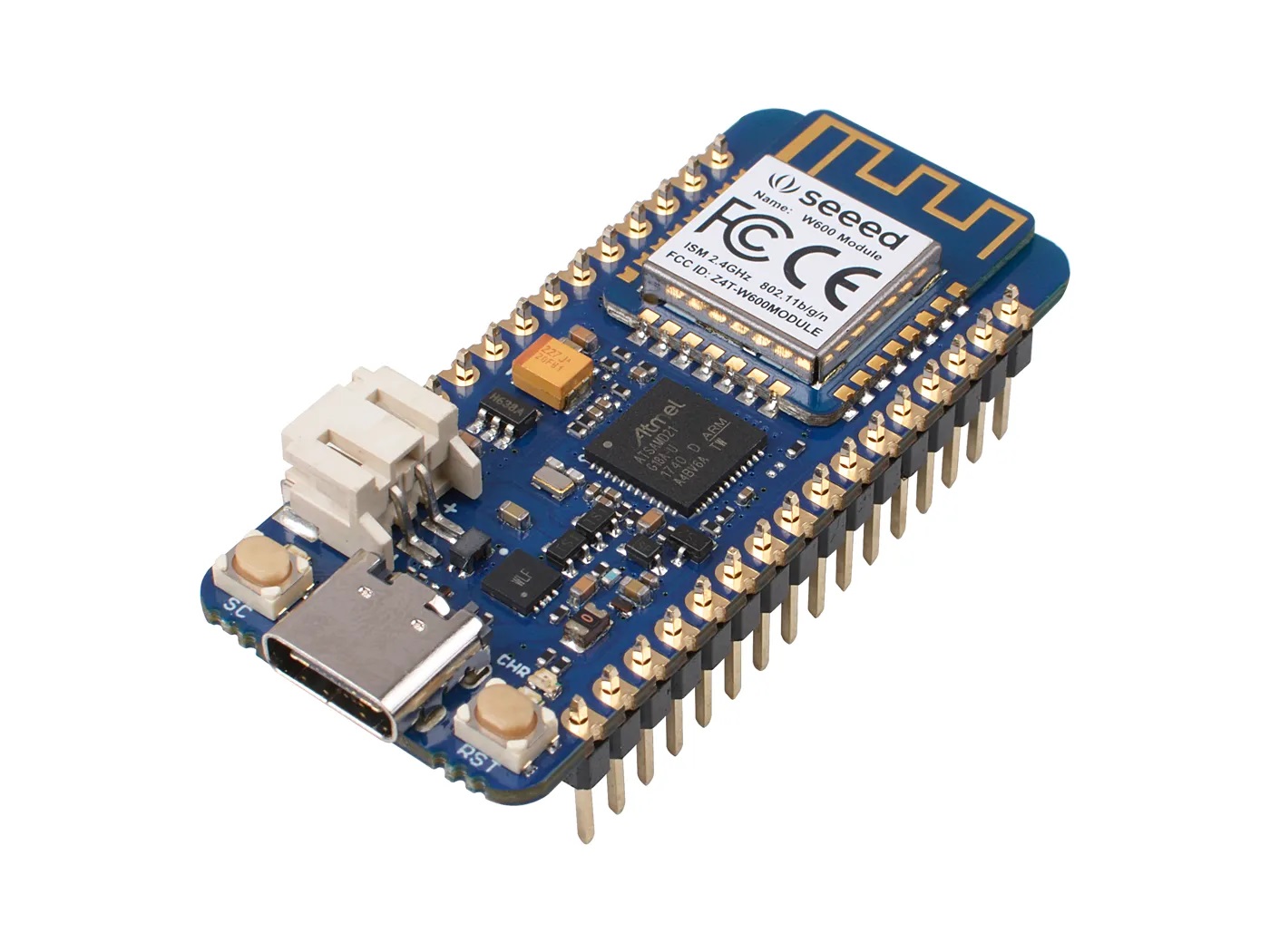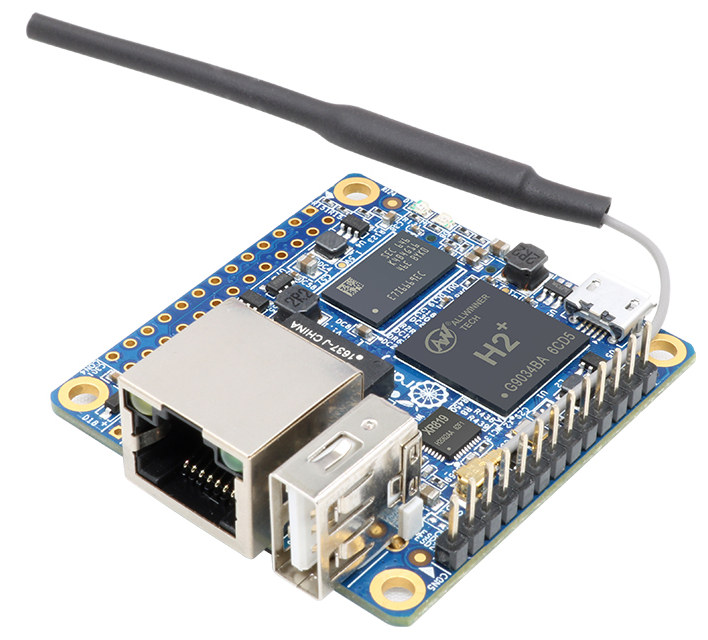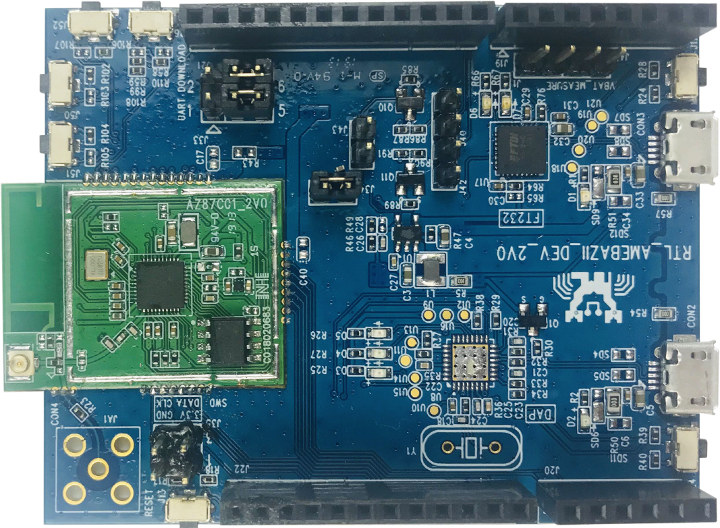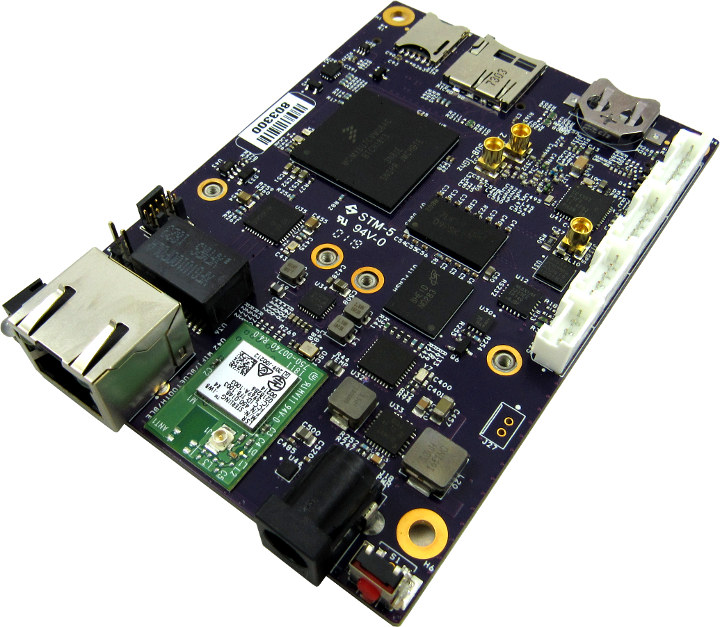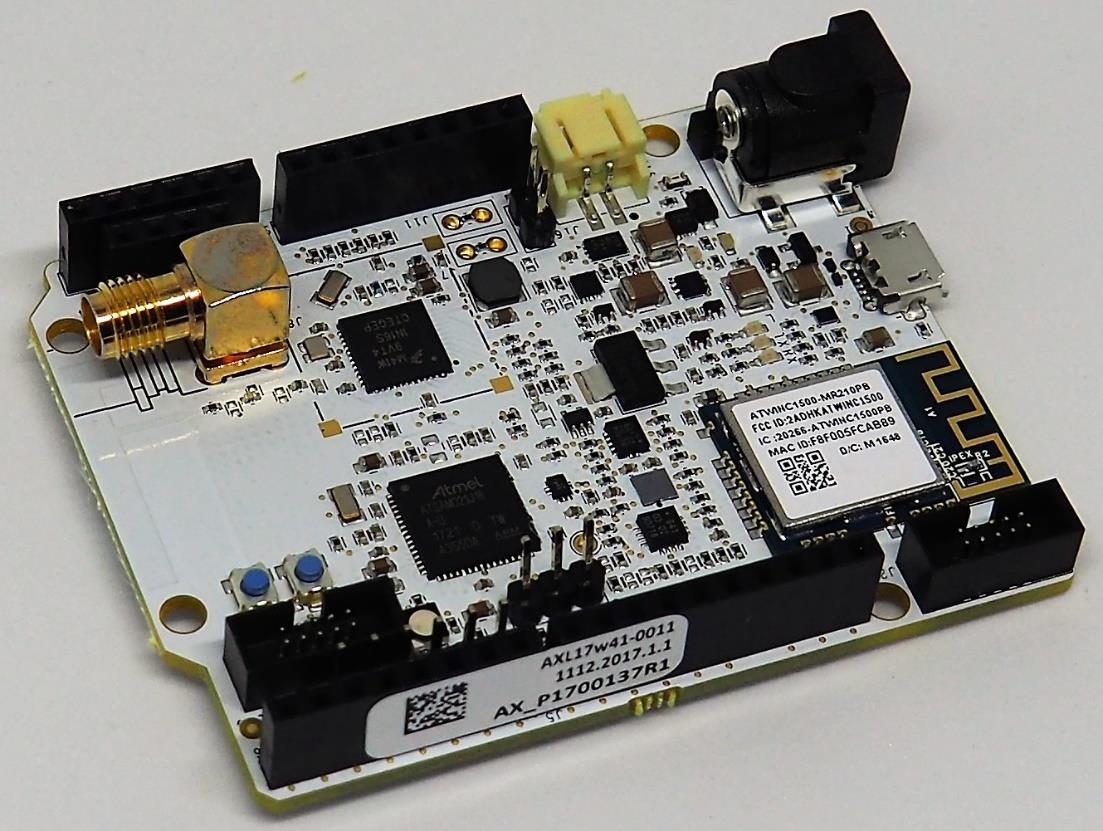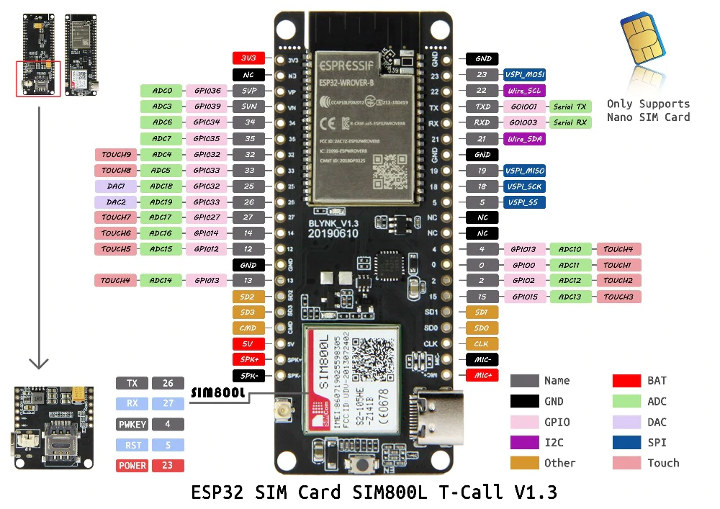Last may Espressif Systems unveiled ESP32-S2 secure WiFi processor with a single Xtensa LX7 core clocked at 240 MHz, and the first ESP32 processor to come with a built-in USB (OTG) interface, as well as some new features such as WiFi Time-of-Flight (ToF), hardware security, LCD RGB & camera interfaces, and more. Note that contrary to other ESP32 processors launched so far, ESP32-S2 does not support Bluetooth. ESP32-S2 Datasheet The processor is still not available, but there has been some interesting development in recent weeks. First the datasheet (PDF) has been released, so we’ve got to check more technical details including the processor diagram below. The main specifications have not changed, so I won’t reproduce them here, and you can check out ESP32-S2 announcement for specs. ESP32-S2 Development Boards The first ESP32-S2 development boards are also available… in Espressif Systems’ offices that is, but not quite publicly. The board above […]
Pitaya Go is an IoT development board with multi-protocol wireless connectivity
One of the challenges in starting a new IoT project is the question of what connectivity to use. Depending on the nature of a project, there are several wired and wireless connectivity options that can be used to power a project and ensure it’s a success. We have WiFi, Bluetooth, Zigbee, Zwave, LoRa, ZigFox, Thread, NB-IoT, 3G/4G, and others. You can use from anyone, but which one to use is another thing because most development board only support 1 or 2 of those. Well, with the introduction of the Pitaya Go, you don’t have to worry so much about that decision. The Pitaya Go is an IoT development platform with multiprotocol wireless connectivity built-in. The Pitaya Go is based on the Nordic’s high-end multiprotocol SoC nRF52840 and the Microchip’s extremely low power Wi-Fi network controller ATWINC1500B. The nRF52840 SoC is the most advanced member of the nRF52 Series SoC family, and it […]
$10 Wio Lite W600 Arduino Zero Compatible WiFi Board Follows Adafruit Feather Form Factor
Seeed Studio has just released the latest Arduino compatible Wio Lite W600 a combination of the W600 WiFi module mounted on the board and an Atmel SAM D21 Arm Cortex-M0+ microcontroller. The WiFi core is a W600 2.4 GHz module featuring the Arm Cortex-M3. The SAM D21 is the same chip used by the Arduino Zero, so the Wio Lite W600 is compatible with Arduino Zero. Basic Specs The I/O level is 3.3V, and there are 6 analog pins and 14 digital pins, as well as one UART, I2C, and ICSP port. The board is powered through a USB Type C port or a 3.5V–4.2V LiPo battery. The latest feature is the W600 module is CE/FCC certified and supports 802.11 b/g/n WiFi. The WiFi module also features 1MB on-chip flash to store and run freeRTOS operating system. Seeed Studio provides a full Arduino W600 library and demos for many wireless […]
Orange Pi Zero LTS Allwinner H2+ SBC Gets More Efficient and Cooler
Orange Pi Zero is a cool little Arm Linux board based on Allwinner H2+ processor for headless applications requiring WiFi and/or Ethernet that was first launched in November 2016 for $7 and up. It was not launched without controversy, as first users had various issues with the Allwinner XR819 WiFi module, but I had no such problem when I made an Orange Pi Zero Google Assistant smart speaker. Nevertheless, Shenzhen Xunlong Software is about to launch a newer version of the board – Orange Pi Zero LTS -, with the same specifications, but improvements in the design in order to reduce power consumption, and lower the board’s temperature. As the name implies, the company will commit to long term support (i.e. long term availability) for the board, but they did not tell me for how many years. Orange Pi Zero LTS v1.5 specifications: SoC – Allwinner H2+ quad-core Cortex A7 […]
Ameba Z2 IoT Board Features Realtek RTL8720CM Armv8-M KM4 Secure Wireless MCU
In 2016 we discovered Realtek Ameba wireless microcontrollers combining an Arm Cortex-M3 core with WiFi connectivity, and that could potentially become an ESP8266 competitor with modules selling for as low as $2. But the solution never really took off, because it was about the same price as ESP8266, and the latter already had a solid software ecosystem and community. But RealTek has now introduced a new Ameba Z2 IoT development board powered by RTL8720CM microcontroller featuring an Armv8-M KM4 core clocked at 100 MHz. What’s an Arm KM4 core you may ask? Seeed Studio informed me Arm and RealTek worked together on the KM4 core, so it looks like a custom Armv8-M microcontroller. Ameba Z2 IoT Development Board Ameba Z2 (ZII) specifications: Wireless MCU – Realtek RTL8720CM single core Armv8-M KM4 core @ 100MHz with 4.2MB internal RAM, WiFi and Bluetooth radios Storage – 2MB external flash on module Connectivity […]
Gateworks Ventana GW5910 SBC Targets WiFi, BLE & Sub-1GHz IoT Gateways
Freescale/NXP i.MX6 based Gateworks Ventana single board computers have been around at least since 2013 and were initially targeting networking processing applications for the industry. They could be used into all sort of gateways with cellular or WiFi connectivity for instance, thanks to the presence of mini PCIe sockets. But the latest Gateworks Ventana GW5910 SBC does not exclusively relies on mini PCIe cards for wireless connectivity, as it includes an onboard Laird Sterling 802.11b/g/n WiFi & Bluetooth module, as well as optional TI CC1352P dual-band Wireless MCU supporting Sub-1GHz and 2.4GHz RF, and an optional on-board u-blox GPS module, which should lower the total cost compared to solutions with mini PCIe cards. Ventana GW5910 specifications: SoC – NXP i.MX6 Dual Core Arm Cortex-A9 SoC Processor @ 800MHz System Memory – 512MB DDR3-800 SDRAM Storage – 256MB Flash System Memory, microSD card slot, mSATA socket Connectivity Gigabit Ethernet Port Onboard […]
Arduino Compatible ASME TIGER Board Supports Thread on NXP Kinetis KW41Z WiSoC
The new Arrow ASME Tiger board is the latest addition to the ASME line up, with an eye towards IoT hardware prototyping. The board carries two MCUs for different types of development depending on the operators need. The board is Thread and WiFi ready, and the Tiger is also Arduino compatible. The MCU’s are as follows: The ATSAMD21J18A-64 Ultra-low-power microcontroller using the 32-bit ARM Cortex-M0+ processor. The WiSoC is the KW41Z which is an ultra-low-power, highly integrated single-chip device that enables Bluetooth® low energy (BLE) v4.2 and IEEE® 802.15.4 RF connectivity for portable, extremely low-power embedded systems. The working unit is for very low power applications. The integrated balun reduces system cost and board area, and the sensors are plentiful and easy to access. You’ll find a user guide (PDF), as well a bootloader and sample code on Github. Specifications for the SMART SAMD21 Memory 256KB in-system self-programmable Flash 8KB […]
$15 TTGO T-Call Board Combines ESP32 WiFi & Bluetooth SoC with SIM800 GPRS Module
LilyGo has launched several TTGO boards usually based on Espressif ESP8266 or ESP32 over the years. Here’s another that could be useful if 2G cellular networks have not sunset in your country: TTGO T-Call. The new board combines ESP32 WiFi & Bluetooth WiSoC with SIMCom SIM800L GPRS module, and also happens to rely on a USB-C port for power and programming instead of the more common micro USB port on this type of hardware. TTGO T-Call board (BLINK_V1.3) specifications: Wireless Module – ESP32-WROVER-B based on ESP32 dual core Xtensa processor @ 240MHz with 520kB SRAM on-chip, 4MB QSPI flash, 8MB PSRAM Connectivity – WiFi 4 802.11 b/g/n (2.4 GHz) up to 150 Mbps Bluetooth 4.2 Classic + LE Cellular – 2G GSM/GPRS via SIMcom SIM800L module + Nano SIM card slot USB – 1x USB-C for power and programming (via CP2104) Expansion – 2x 21-pin headers with UART, SPI, SDIO, […]


